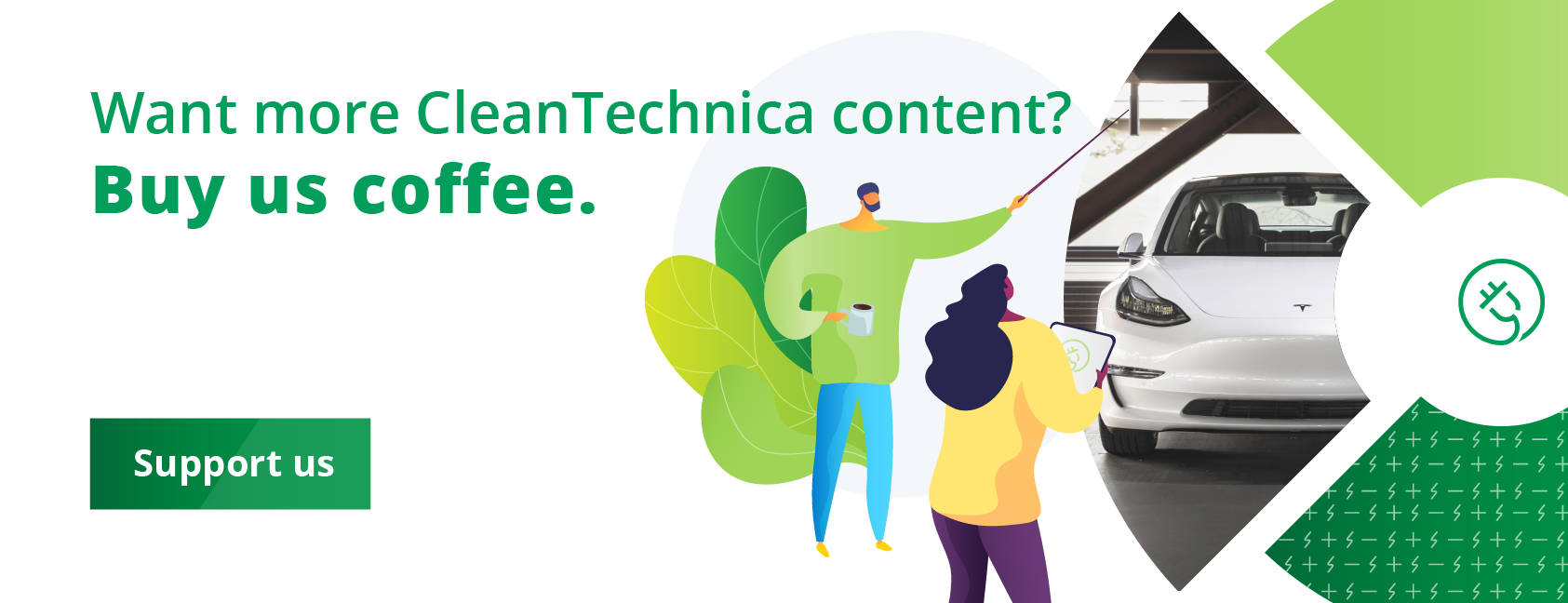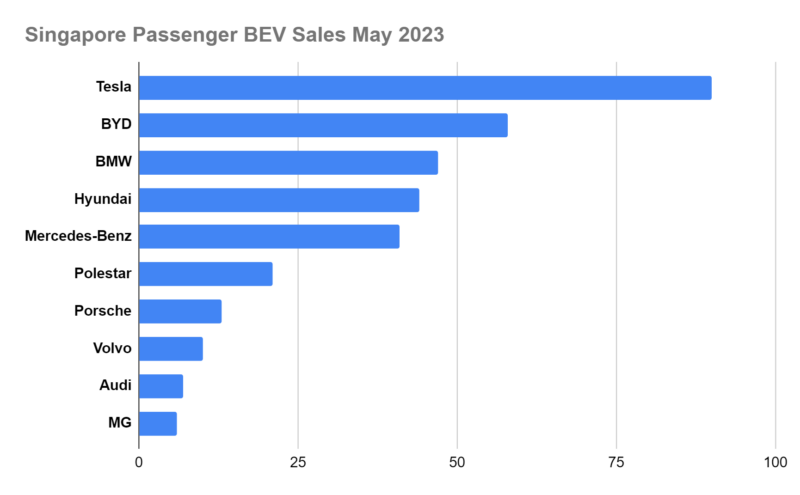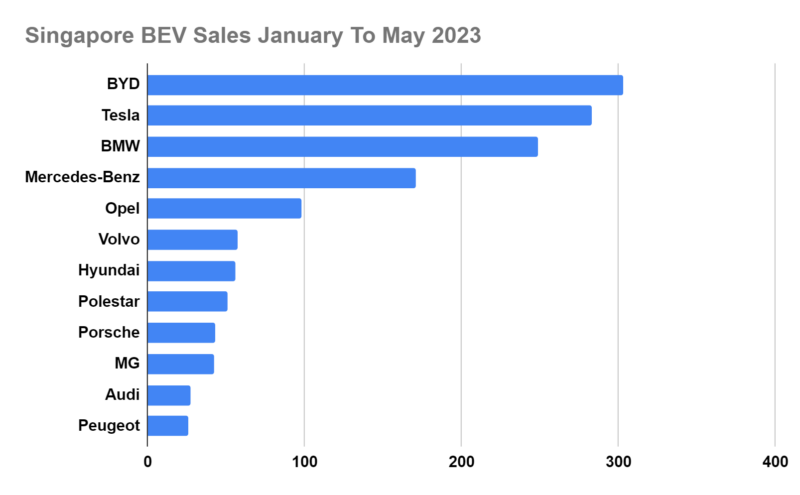
Tesla was the topselling battery-electric vehicle brand in Singapore in May, with 90 units sold that month. BYD was second with 58 units registered in May. BMW was third with 47 units, Hyundai in 4th with 44 units, and Mercedes-Benz rounded off the top 5. For the period covering the first 5 months of the year from January to May, 10,892 cars were sold in Singapore in the overall market, including petrol and diesels. Just over 1,400 of these vehicles were full battery-electric vehicles, meaning that about 13% of all the vehicles sold in Singapore in the period were battery-electric. This shows some very good progress in a small, but still important, auto market in the region.
From January to May, BYD topped the charts and just edged Tesla by a few units. 303 BYDs were sold in Singapore in the first 5 months of the year, followed by Tesla with 283 units. That means that BYD just edged Tesla by only 20 units. It will be interesting to see how this race shapes up during the course of the year and to see what the final standings will look like at the end of the year. BMW was in third place, and not far behind Tesla, with 249 units — a difference of 34 units. Mercedes-Benz was in fourth place with 171 units, and Opel rounded up the top 5 with 98 units. Volvo, Hyundai, and Polestar were all in the fifties with 57, 56, and 51 units sold, respectively. Porsche and MG were in the forties with 43 and 42 units, respectively. Audi and Peugeot were in 11th and 12th place in the twenties with 27 and 26 units.
The Singapore market is quite a small market. In large part, this is because the government has put in place several measures to control the vehicle population in such a small country. Last year, just under 31,000 new vehicles were registered in Singapore. In 2021, 45,442 vehicles were registered, and 44,465 vehicles were registered in 2020. Just before the Coronavirus lockdowns, 72,344 vehicles were registered in 2019, and 80,281 in 2018. The flow of cars into Singapore is tightly controlled using instruments like higher import duties and taxes. They could actually extend this framework for managing inflows of vehicles to be heavily weighted towards electric vehicles.

Singapore can easily follow in the footsteps of Norway and quickly become an all-BEV market for new vehicle sales in a short space of time. Even though the Singapore market its quite small compared to traditional giant auto markets like China, USA, and Europe, it’s still good to follow the progress in these kinds of markets and see how well the transition to electric mobility is going there. That is why I like to follow the progress of BEV sales in these small markets, as it gives an indication of where we are now along the transition to electric vehicles in more places around the world and not just in the traditional large auto markets. It’s really great to see this much progress in more markets around the world. The transition is well underway.
I don’t like paywalls. You don’t like paywalls. Who likes paywalls? Here at CleanTechnica, we implemented a limited paywall for a while, but it always felt wrong — and it was always tough to decide what we should put behind there. In theory, your most exclusive and best content goes behind a paywall. But then fewer people read it! We just don’t like paywalls, and so we’ve decided to ditch ours. Unfortunately, the media business is still a tough, cut-throat business with tiny margins. It’s a never-ending Olympic challenge to stay above water or even perhaps — gasp — grow. So …






